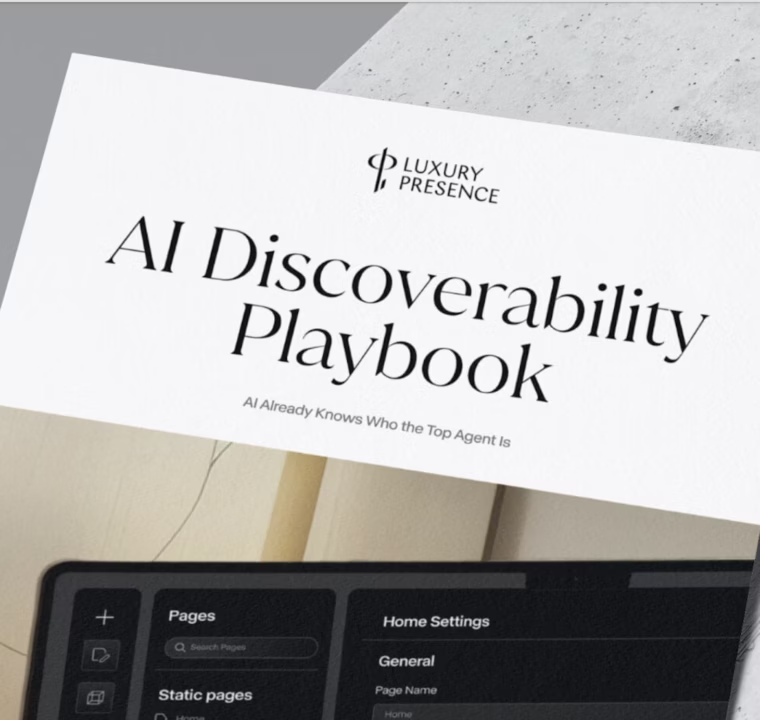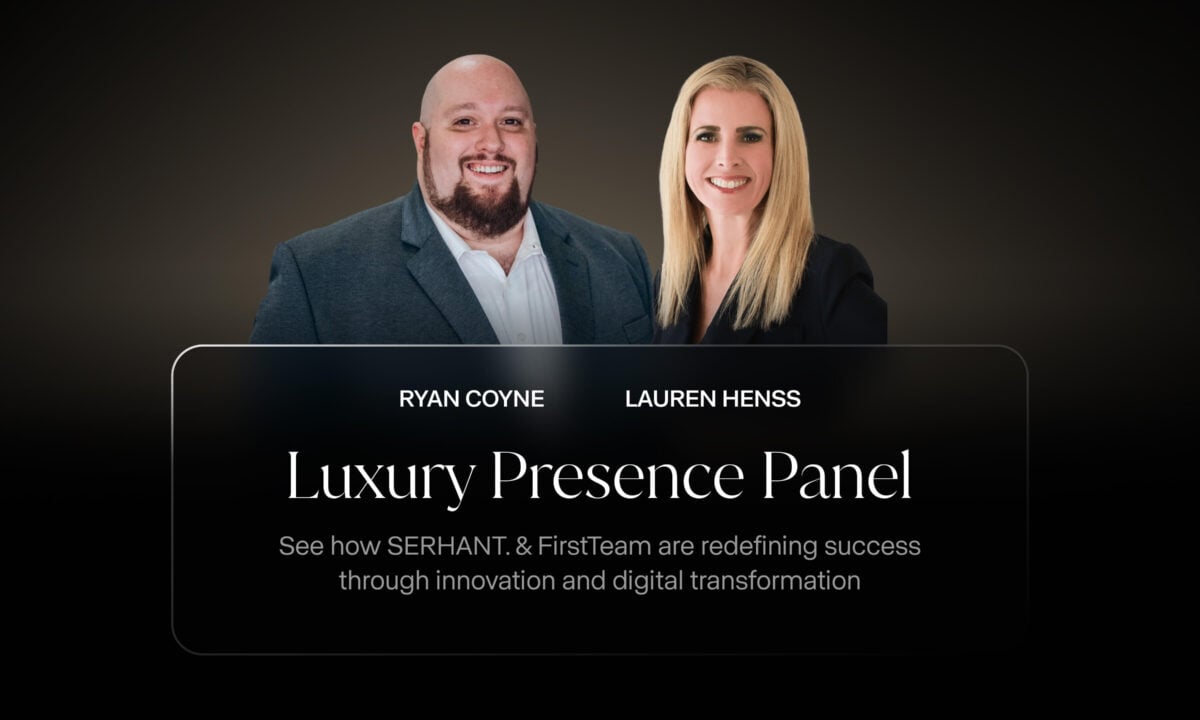AI search emerges as the next major real estate battleground
Luxury Presence founder and CEO Malte Kramer mapped out what he described as a pivotal moment for digital discovery in real estate: The rapid ascent of AI-powered search.
Drawing on internal data, industry patterns, and client success stories, Kramer urged agents to seize what he called “a very big, very significant platform shift” toward conversational engines like ChatGPT before the opportunity window narrows.
Find It Fast
Understanding the difference between traditional and AI search
“ChatGPT is now the second largest search engine behind Google,” he said, citing 700 million active weekly users and more than 100% traffic growth in the last year. While Google remains dominant in raw volume, its overall search activity has dipped about 8% in the same period.
For agents, Kramer noted, the inflection point resembles past upheavals in online marketing, when early adopters of IDX websites, SEO, and TikTok secured durable competitive edges.
Kramer outlined how search intent and results presentation diverge sharply between Google and AI platforms. On Google, a typical query returns at least 10 results, with about 40% of searches generating a click-through to a website. Those visitors are often still comparing options, which means higher traffic but lower conversion rates.
By contrast, ChatGPT frequently produces only one or a handful of answers, and “often users will stay within ChatGPT to do all of their research,” he explained. When users do click out, they are usually ready to make a decision.
“Conversion rates on ChatGPT traffic might be five to 10 times higher than Google traffic,” Kramer said. The implication: while absolute visitor counts may shrink, lead quality can rise dramatically.
Factors driving AI recommendations
Although AI ranking logic differs in some respects, many long-standing SEO principles still apply. Kramer identified five main elements influencing AI-driven results: documented experience and performance; reputation and reviews; query relevance; content quality and authority; and overall online presence, including press mentions.
“If you’ve invested in your brand, your online brand … the volume of your brand searches and mentions and overall sentiment across really all online sources is a really important factor for ChatGPT as well,” he said. Quality content, he stressed, remains critical.
Making websites legible to AI
Kramer’s first tactical recommendation was to ensure that a site is machine-readable in addition to visually appealing for human visitors. “When an LLM like ChatGPT visits your website, it’s looking for the technical markers and the text and underlying code to tell it what’s important,” he said.
He listed semantic HTML, schema markup, descriptive metadata, and full crawler access as core requirements, along with fast-loading pages. AI’s capabilities are likely to expand to interpreting images and videos, so preparing for multimodal comprehension is prudent.
Narrowing focus to dominate a niche
Broad rankings for “best agent in [city]” may be unattainable for newer agents, but Kramer emphasized that specialized searches present a more accessible path. He encouraged participants to “pick a niche and make your brand and content about that niche” so AI systems can clearly associate them with targeted expertise.
Examples included representing athletes, handling historic homes, or serving clients in a particular neighborhood. Additional differentiators could be language skills, unique services, or transaction types. “There are riches in niches,” he reminded the audience.
Crafting content that AI favors
Generic articles rarely perform well in AI search because they echo information already found in training data. Kramer advised producing “original, data rich and correct” material that is locally grounded and tied to the chosen specialty.
He suggested formats such as market reports, detailed case studies, neighborhood trend explainers, and vendor lists based on personal experience. Specific numbers, dates, and proper nouns improve discoverability. Blog posts should begin with a summary, incorporate headings, and, when appropriate, feature FAQs, which align with AI’s conversational patterns.
Building authority through third-party recognition
Press coverage, rankings, and awards carry significant weight in AI-driven results. Kramer encouraged agents to identify local publications and apply for every relevant accolade. National trade media, verified industry rankings, and trusted business directories can also validate expertise.
Even without high-profile sales, agents can secure coverage by cultivating journalist relationships, responding to media requests via services like Qwoted, or issuing press releases about notable business developments. “Your goal here is to get your brand featured in as many of these as possible,” he said. Once earned, these mentions should be showcased on websites and repurposed in marketing channels to extend their impact.
Optimizing reviews for AI visibility
Reviews remain a cornerstone of digital trust, but specificity elevates their value in AI contexts. Kramer advised prompting clients to reference neighborhoods, property types, or distinct experiences when writing feedback. “That becomes content that again, ChatGPT can take into account and that will help you rank within the specific niche that you want to serve,” he said.
Agents should respond to every review, deliberately weaving in keywords related to their specialization. Core platforms to target include Google, Zillow, Yelp, and Facebook. For those in markets where clients are reluctant to leave public reviews, vendor or partner testimonials can help maintain an active profile.
Sequencing strategies for compounding impact
Kramer positioned these strategies, an AI-optimized site, niche positioning, original content, press mentions, and targeted reviews, as interdependent. Each supports the next, creating a flywheel effect that strengthens AI search performance over time.
He acknowledged the implementation demands but underscored the urgency. “The moment to do this work is right now,” he said, warning that the opportunity to claim prime AI search territory will diminish as competition increases.
Introducing AI marketing specialists
For those preferring a turnkey approach, Kramer unveiled Luxury Presence’s new AI Marketing Specialists, a suite of tools embedded into its platform. The lineup includes:
- AI SEO specialist for ongoing technical optimization and keyword monitoring.
- AI paid media specialist for autonomous ad campaign management.
- AI blog writer for brand-aligned content creation and publishing.
- AI lead nurturing specialist for sustained, automated engagement with prospects.
An AI social media specialist, scheduled for release later this year, will handle research, strategy, and content production for social channels. “It’s like having a social media manager on your team, all powered by AI,” Kramer said.
Some plans include these services at no extra cost; others require an upgrade.
Partnering with Luxury Presence
Kramer concluded by inviting attendees to request the AI Discoverability Playbook or book a personalized demo. With prime AI search positioning still available, he urged immediate action: “The moment to do this work is right now.”
The AI Discoverability Playbook
The ultimate 5-step plan to be ranked among the top agents on ChatGPT.



